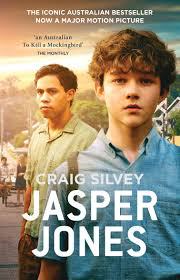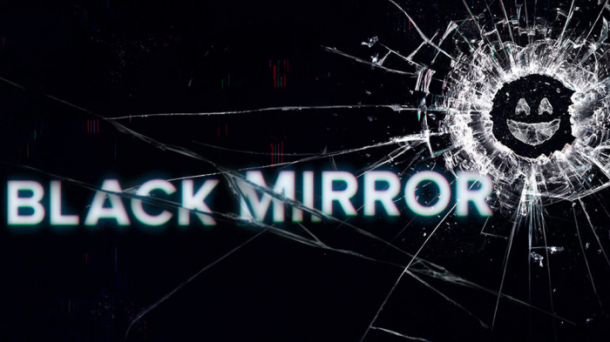Title: Jasper Jones
Author: Craig Silvey
Published: March 31st 2009
Publisher: Allen & Unwin
Pages: 397
Genres: Fiction, Australian
RRP: $23.99
Rating: 4 stars
My review:Late on a hot summer night in 1965, Charlie Bucktin, a precocious and bookish boy of thirteen, is startled by an urgent knock on the window of his sleep-out. His visitor is Jasper Jones, an outcast in the regional mining town of Corrigan.
Rebellious, mixed-race and solitary, Jasper is a distant figure of danger and intrigue for Charlie. So when Jasper begs for his help, Charlie eagerly steals into the night by his side, terribly afraid but desperate to impress. Jasper takes him to his secret glade in the bush, and it’s here that Charlie bears witness to Jasper’s horrible discovery.
With his secret like a brick in his belly, Charlie is pushed and pulled by a town closing in on itself in fear and suspicion as he locks horns with his tempestuous mother; falls nervously in love and battles to keep a lid on his zealous best friend, Jeffrey Lu.
And in vainly attempting to restore the parts that have been shaken loose, Charlie learns to discern the truth from the myth, and why white lies creep like a curse.
In the simmering summer where everything changes, Charlie learns why the truth of things is so hard to know, and even harder to hold in his heart.
Craig Silvey’s second novel, Jasper Jones, was written in 2009 and most recently reinvented through a big screen adaptation. It was also my pick for our monthly book club read. I have been interested in reading Silvey’s book for some years now, perhaps due to the comparisons drawn to Jasper Jones and a favourite book of mine, the classic, To Kill a Mockingbird. The link between To Kill a Mockingbird and Jasper Jones comes from the common themes the two books share. Both books feature small town prejudice and are narrated by a young adolescent protagonist. These comparisons are warranted and I can see how Jasper Jones has the makings of being a modern Australian classic. It is also a book that I feel should be placed on the high school curriculum.
Charlie Bucktin is the central narrator in Craig Silvey’s novel. Charlie is a thirteen year old boy, almost ahead of his years, aided by his great appreciation for all things literary. Charlie lives with his parents, in the small mining town of Corrigan, located in rural Western Australia. The book opens on a balmy night in 1965, as Charlie receives a night time visit from the town’s outcast, a sixteen year old indigenous boy, named Jasper Jones. Jasper insists that Charlie accompany him to the outskirts of town, where he has something important to show him. When they reach the scene, Charlie’s life is forever changed by what he witnesses. Hanging from a tree is the daughter of the town’s councillor, Laura Wishart. While Charlie wants to immediately call in for help from the police, Jasper urges Charlie not to, as he fears he will be blamed for the crime. Together, the two boys cut Laura down from the tree and bury her in a local lake, hoping her body will never surface. The two boys return home, taking a vow of secrecy over the discovery and removal of Laura’s body. Life returns to normal for the boys but Charlie is altered by what he has witnessed. The event opens Charlie’s eyes to other dark goings on in his local town, which is a town full of many secrets.
I read Jasper Jones for book club a few months ago now. I have to be honest and reveal to you that I have been sitting on the fence in my overall assessment of Jasper Jones. I think I built my expectations up for this book so much and my yearning for wanting to read this book for such a length of time, that I expected to be blown away completely. I finally feel like I am the right head space to give it the review it deserves and provide my verdict on the enigmatic Jasper Jones.
The dramatic opening piece, a body hanging from a tree, hooked me in immediately to Jasper Jones. This aspect of the narrative had me the most intrigued and formed my main motivation for following the story. I was desperate to find out how Laura ended up in that tree, for what reason and who did this to her. The process of peeling back and exposing the true fate of Laura was compelling. It involved some second guessing and theorising, which eventually was rewarded, when my suspicions were confirmed. It did evoke a deep sadness on behalf of Laura, Jasper Jones and her family.
Charlie is an original and compelling voice. Silvey demonstrates his skills as storyteller to balance out this awkward adolescent voice, with events that are often quite adult for a thirteen year old boy to have to contend with. At the heart of Jasper Jones is Charlie’s coming of age story, set against the backdrop of the terrible death of a young girl. Silvey’s solid characterisation extends past Charlie, to include Jasper Jones, Charlie’s friend Jeffrey and the adult figures, such as Charlie’s parents, who are all fully formed.
The tender relationship between Charlie and his best friend Jeffrey Lu, the son of immigrants from Vietnam, is one of the shining lights of this novel. The banter that runs between Charlie and Jeffrey is enjoyable to read. However, these two young boys seem ahead of their time, if the dialogue is anything to go by. One of the most pivotal scenes in the novel involves Jeffrey’s triumph on the cricket field, where he excels but is downcast due to his race. It was great to see the underdog win but in the same instance, it was terribly to sad to know that attitudes like those directed towards Jeffrey were prevalent not so long ago. I will admit that the focus on cricket in these areas of the narrative was a little too strong for me and I ended up feeling like one big cricket novice!
Silvey does a good job of incorporating themes which give the reader a solid commentary as to what life was like, particularly in relation to the typical social and moral codes that existed in Australia in the 1960’s. Bearing in mind this was the time where Australia was heavily committed to the Vietnam War, it was a difficult time for families such as the Lu’s. Immigrant Vietnamese families faced much blame and scorn in the face of the war. It was hard not to turn away when I read the passages where Jeffrey and the whole Lu family were ill-treated. Likewise, Silvey examines the racist treatment of the indigenous, through the character of Jasper Jones. Jasper is used as a scapegoat for many of the crimes that occur in the small town of Corrigan. His treatment was also appalling. Silvey highlights the various internal struggles of his characters with ease.
The darkness of Australian society, especially small town single mindedness, is put on the spotlight through Craig Silvey’s breakthrough second novel. It is offset by the lightness of Charlie, his friendship with Jeffrey, his loyalty to Jasper and his tentative steps towards first love. I think this is a book that will easily hold appeal to adults and younger readers alike, due to the strength of the adolescent narrator Charlie. It was the ideal book club pick, spurring plenty of worthy discussion points and gleaning a set of mixed responses. For interest purposes, in my own book club, the reactions to Jasper Jones were varied. A couple of readers did not wish to finish the book, or glossed over it. The reasons for this tended to be an inability to warm to any of the characters early on in the piece, or feeling a sense of disconnection from Silvey’s style of writing, with particular complications stemming from the overly mature voice of Charlie Bucktin. Then there was my obvious appreciation of this coming of age tale, which seemed to grow with time.
Jasper Jones by Craig Silvey was published in March 2009 by Allen & Unwin. Details on how to purchase the book can be found here.
Learn more about the author of Jasper Jones, Craig Silvey here.
Advertisements Share this:





